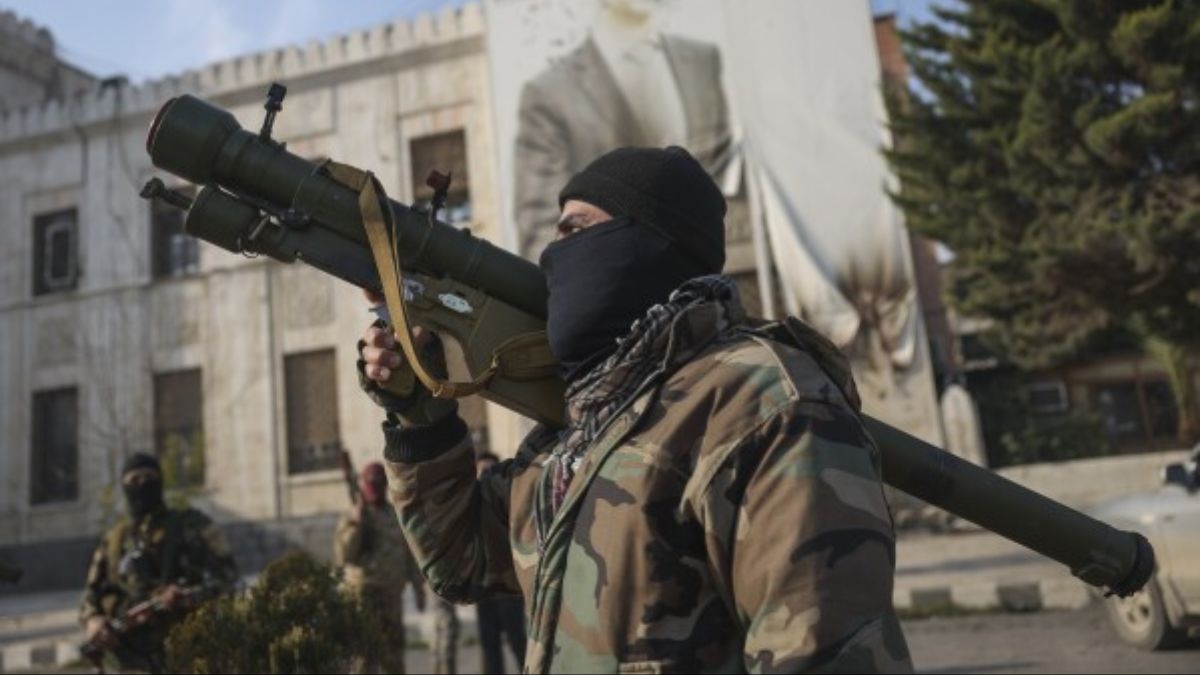Despite the fall of Bashar al-Assad’s regime, dismantling Syria’s chemical weapons program remains a major challenge, hampered by unresolved declarations, ongoing security concerns, and the legacy of chemical attacks carried out during his rule.
For years, Assad’s forces were accused of using chemical weapons against civilians, with the 2013 sarin gas attack in Ghouta– which reportedly killed more than 1,100 people– prompting international condemnation.
In response, Syria joined the Chemical Weapons Convention (CWC) and agreed to eliminate its arsenal under the Organisation for the Prohibition of Chemical Weapons (OPCW) supervision. That commitment, however, is suspected to have not been fulfilled.
“It is ‘undeniable’ that the previous authorities in Syria did not declare the full extent of its chemical weapons programme and that they continued to use, and possibly produce, chemical weapons after joining the Convention,” said Izumi Nakamitsu, UN High Representative for Disarmament Affairs, told the United Nations Security Council on Friday (March 7), citing reports from the OPCW Technical Secretariat.
But change is expected now. With Assad’s regime no longer in power, Syria’s new caretaker authorities have signalled a willingness to cooperate with international disarmament efforts.
However, Nakamitsu warn that dismantling the country’s chemical weapons program will not be easy.
Unresolved discrepancies in Syria’s chemical stockpile
Despite 20 amendments to its original declaration, the OPCW has determined that the Assad regime failed to fully disclose the extent of its chemical program.
Reports indicate that chemical weapons were used multiple times after Syria joined the CWC in 2013, including attacks carried out by Syrian Armed Forces . This has raised concerns that weapons may still be hidden or stored in secret locations.
With the new Syrian leadership pledging transparency, the OPCW plans to deploy a technical team to Damascus and establish a permanent presence to conduct site inspections.
Impact Shorts
More ShortsThere are obstacles on that path, though.
Security threats and political instability
Syria remains deeply unstable following Assad’s departure. Fighting continues in coastal areas between Syrian Caretaker Authority forces and soldiers loyal to the former regime.
The death toll from two days of clashes, as well as the subsequent revenge killings, has risen to more than 1000, according to the Syrian Observatory for Human Rights.
UN Special Envoy Geir Pedersen described the situation as volatile.
The ongoing conflict poses a direct threat to OPCW inspectors and disarmament teams, making it difficult to verify and destroy remaining stockpiles.
A problem of trust
To ensure long-term compliance, the OPCW aims to set up a permanent presence in Damascus and conduct joint site inspections.
However, logistical and security obstacles– along with the challenge of rebuilding trust between Syria and the international community– could delay these efforts.
International support needed
Even with renewed cooperation from Syria’s new authorities, the OPCW lacks the resources to fully dismantle the country’s chemical weapons program without significant international funding and logistical assistance.
“In order to accomplish all the tasks needed to rid Syria of all chemical weapons, the OPCW Technical Secretariat and the new authorities in Syria will require strong support and additional resources from the international community,” Nakamitsu said.
While the UN has pledged its backing, political divisions within the permanent members of the Security Council could slow progress. The fate of Syria’s chemical weapons remains not just a national issue, but a regional and global security concern.
The road ahead
With the Assad regime gone, Syria has an opportunity to turn the page on its chemical weapons legacy. But dismantling the program will require resolving lingering discrepancies, ensuring security for inspectors, and preventing remaining stockpiles from being exploited.
The process is expected to be long and fraught with challenges, but failure to fully eliminate Syria’s chemical weapons could leave a dangerous gap in global security.
With inputs from agencies


)

)
)
)
)
)
)
)
)



